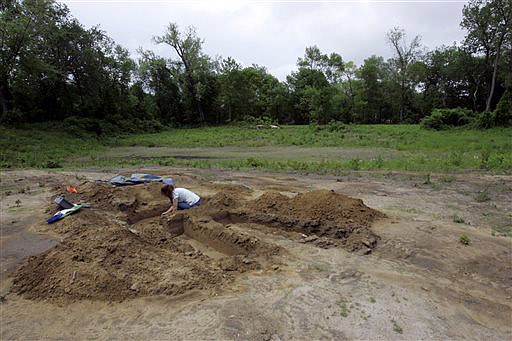FORT EDWARD, N.Y. (AP) - The sale of the Hudson River site considered the birthplace of the U.S. Army Rangers is complete, ending a decade-long effort by an upstate community to secure the public purchase of a historic island and turn it into a heritage tourism attraction.
Officials said the closing on the sale of the 34-acre parcel on Rogers Island in Fort Edward occurred Wednesday. The village and town of Fort Edward, on the Hudson's east bank 45 miles north of Albany, bought the vacant property from a Long Island businessman who inherited it from his father. The municipalities plan to turn it into a public park.
Village attorney Matthew Fuller said the sale price was $450,000. Of that amount, $400,000 was from state grants and other funding, while the remaining $50,000 came from the village and town, Fuller said.
"There's a lot of work ahead," said village board member Ed Carpenter. "Getting the island was the first step."
Fort Edward was the site of Britain's largest fort in North America during the French and Indian War (1754-63), when some 18,000 British and Colonial American soldiers and civilians lived there. The complex included an encampment that served as the base of operations for Rogers' Rangers, frontier scouts led by Maj. Robert Rogers, who wrote his "Rules of Ranging" at Fort Edward in 1757.
His original 28 rules for waging guerrilla warfare in the North American wilderness have been revised and shortened to 19 by the Army Rangers, who still use "Rogers' Standing Orders" to train Ranger candidates at Fort Benning, Georgia.
One former Ranger referred to Fort Edward as "the spiritual home" of Army Rangers.
"It certainly is the birthplace of the American Ranger," said retired Col. Alan Huffines, an author from Abilene, Texas, who serves as historian for the U.S. Army Ranger Association.
"All Rangers are familiar with Rogers' Rangers," Huffines said.
The sale includes the transfer of nearly 90 boxes of artifacts uncovered during archaeological excavations conducted on Rogers Island over the past two decades. David Starbuck, the archaeologist who ran the digs, estimates the boxes contain tens of thousands of 18th-century artifacts, including buckles, butchered animal bones and musket balls. The artifacts were delivered Wednesday to Fort Edward from the property's owner, Anthony Nastasi, a Hauppauge contractor who inherited the land after the death of his father, Frank.
State and local officials began talks years ago with the elder Nastasi about buying his property. After he died in 2007, the state parks office moved toward buying the site from his son, but budget problems derailed the plans. The two local municipalities then took up the cause, eventually landing state grants to cover most of the purchase cost.
In 2006, a local couple who served as caretakers for the Nastasi property uncovered several skeletons buried at the site. State archaeologists analyzed the remains and determined they were buried in unmarked graves in a large military cemetery located on the island during the French and Indian War.
The wooded, overgrown parcel sits empty, other than for a Robert Rogers statue and a memorial to the Rangers. Local officials have said their plans for a public park include building trails and installing signage, as well as integrating the site with the neighboring Rogers Island Visitors Center.

